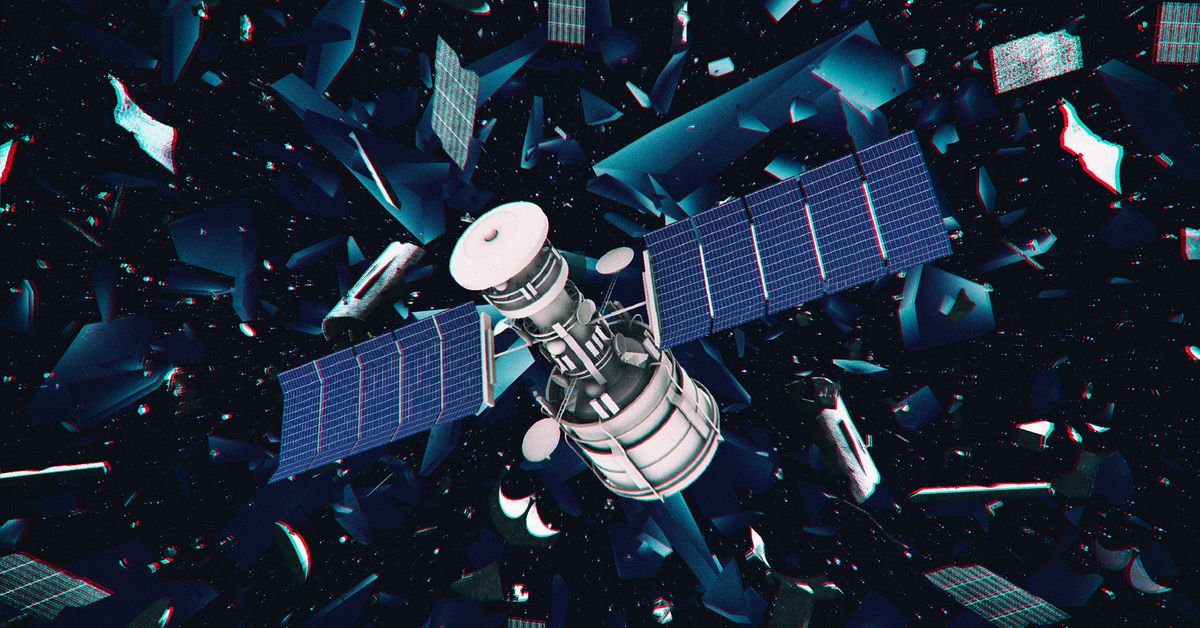
The Department of Defense believes that Russia may have tested out a new technology in space that could be used to destroy other satellites already in orbit. This particular test didn’t destroy anything, but military officials are worried it could be used to target US satellites in the future.
On July 15th, a Russian satellite called Kosmos 2543 released an unknown object into orbit, according to US Space Command, which is responsible for tracking all the objects currently in orbit. The satellite released this mysterious object near another Russian satellite, though no pieces came in contact with one another. At the time of the test, the Russian Defense Ministry admitted that Kosmos 2543 was going to come close to a target satellite to do an inspection, but satellite trackers took notice of a new object appearing around the time the “inspection” took place.
Kosmos 2543 is supposed to be an inspector satellite, according to Russia, so coming close to another Russian satellite isn’t odd behavior. In fact, doing these close proximity “inspections” has become an ongoing trend for Russian satellites over the last decade. “It’s mostly satellites coming close to other Russian satellites or other Russian rocket bodies slowly — like a slow approach over several days,” Brian Weeden, director of program planning for the Secure World Foundation, tells The Verge. “And then they might back away, and then they’ll come close again, then they’ll hang out nearby. That’s the sort of thing we’ve been watching.”
But the Kosmos 2543 probe has gone beyond inspecting just Russian satellites. Kosmos 2543 was deployed by another Russian satellite called Kosmos 2542 in December 2019. In January, satellite trackers noticed that the two satellites seemed to be stalking a US spy satellite called USA 245. US Space Command took notice of this weird behavior, and officials weren’t happy. “We view this behavior as unusual and disturbing,” Gen. John “Jay” Raymond, commander of US Space Command and chief of space operations for the US Space Force, told Time in February. “It has the potential to create a dangerous situation in space.”
Now Raymond is condemning the projectile that Kosmos 2543 released, calling it evidence of a weapon system. “The Russian satellite system used to conduct this on-orbit weapons test is the same satellite system that we raised concerns about earlier this year, when Russia maneuvered near a U.S. government satellite,” he said in a statement. “This is further evidence of Russia’s continuing efforts to develop and test space-based systems, and consistent with the Kremlin’s published military doctrine to employ weapons that hold U.S. and allied space assets at risk.”
It’s not unusual for bigger satellites to release smaller satellites into orbit. Small standardized satellites are often deployed from the International Space Station, while the US Air Force’s mysterious X-37B spaceplane supposedly released small satellites during its fifth trip to space between 2017 and 2019.
What makes the Russian test unique is that whatever Kosmos 2543 released into orbit, the object was moving fast — at least faster than its parent satellite. That signals that the projectile may be more insidious than just another inspector satellite. US Space Command noted that the Kosmos 2543 incident is similar to another event that occurred in 2017, when a Russian satellite called Kosmos 2521 deployed a sub-satellite at high speeds. Raymond has referred to these satellite deployments as akin to “Russian nesting doll” technology.
Of course, the US can’t totally confirm that Kosmos 2543 just tested out an anti-satellite weapon, but the evidence does seem to point to that conclusion. “We don’t have definitive proof, but I think it is,” says Weeden. “It stands out as different from all the other rendezvous and proximity operations that have been going on,” Weeden notes.
This past year, US Space Command has been increasingly decrying Russia’s actions in space. In April, US Space Command confirmed that Russia had conducted another test of its ground-based missile system, designed to take out satellites in space, called Nudol. Raymond swiftly condemned the test. Now with this most recent test in space, US Space Command is warning about the growing threat of Russia’s space capabilities. And Raymond hinted that the US would respond to this type of aggressive behavior. “The United States, in coordination with our allies, is ready and committed to deterring aggression and defending the Nation, our allies, and vital U.S. interests from hostile acts in space,” Raymond said in a statement.
https://www.theverge.com/2020/7/23/21335506/russia-anti-satellite-weapon-test-kosmos-2543

